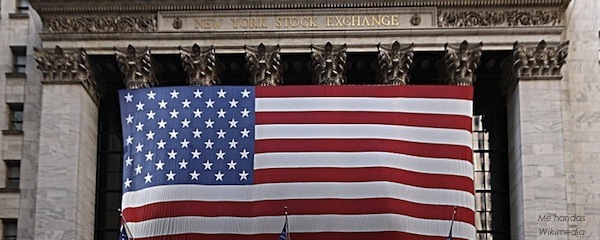On day two of Hillary Clinton’s campaign through Iowa, she made an effort to distance herself from some of the Wall Street crowd she used to represent (and drew a lot of financial support from) as a US Senator from New York. Reuters:
“There is something wrong when hedge fund managers pay lower tax rates than nurses or the truckers that I saw on I-80 as I was driving here over the last two days,” Clinton said, perched on a stiff metal chair in the automotive shop of a community college.
Some hedge fund managers and private equity firm partners, among the wealthiest financiers on Wall Street, benefit from a tax code loophole that lets them pay the capital gains tax rate, which is lower than the ordinary tax rate, on large portions of their incomes.
Clinton also repeated her concerns, first voiced on Sunday, that chief executives make 300 times more than the average worker, and sympathized with students discussing the high cost of a college education.
The United States has the highest executive pay packages in the world, and the already large disparity between CEO compensation and salaries of the average American worker has exploded since 1980 (although the gap peaked in 2000).
The Globalist itemizes the facts in “CEOs and the Rest of Us”:
1. On average, the CEOs of large U.S. companies received $12.3 million in compensation in 2012, based on an analysis of S&P 500 companies.
2. Given that the average American worker earned $34,645 in 2012, the typical U.S. CEO earns 354 times what the average worker does.
[…]
5. A worker at the U.S. minimum wage would have to work 813 hours — or 20 weeks — to earn an hour’s worth of CEO pay.
[…]
9. The CEOs of the 100 largest companies in the United Kingdom earned an average of just under $3.8 million in 2012. That is 84 times the average British worker’s compensation of $44,743.
10. Britain’s CEO-to-worker wage ratio today is almost exactly the same as the one in the United States in 1990 — more than two decades ago.
11. At that time, U.S. CEOs earned “only” 85 times the average U.S. worker’s wage.
Vermont Senator Bernie Sanders, a democratic socialist, has been speaking in Iowa on these issues as well for many months, as he decides whether or not to run against Clinton for the Democratic presidential nomination. Another likely contender, Maryland Gov. Martin O’Malley, also called recently for stronger regulations on Wall Street.







